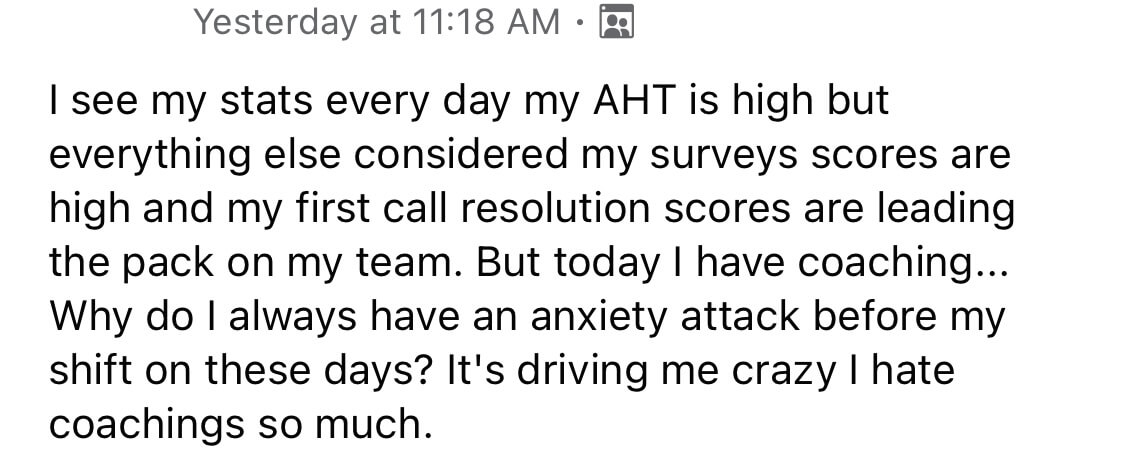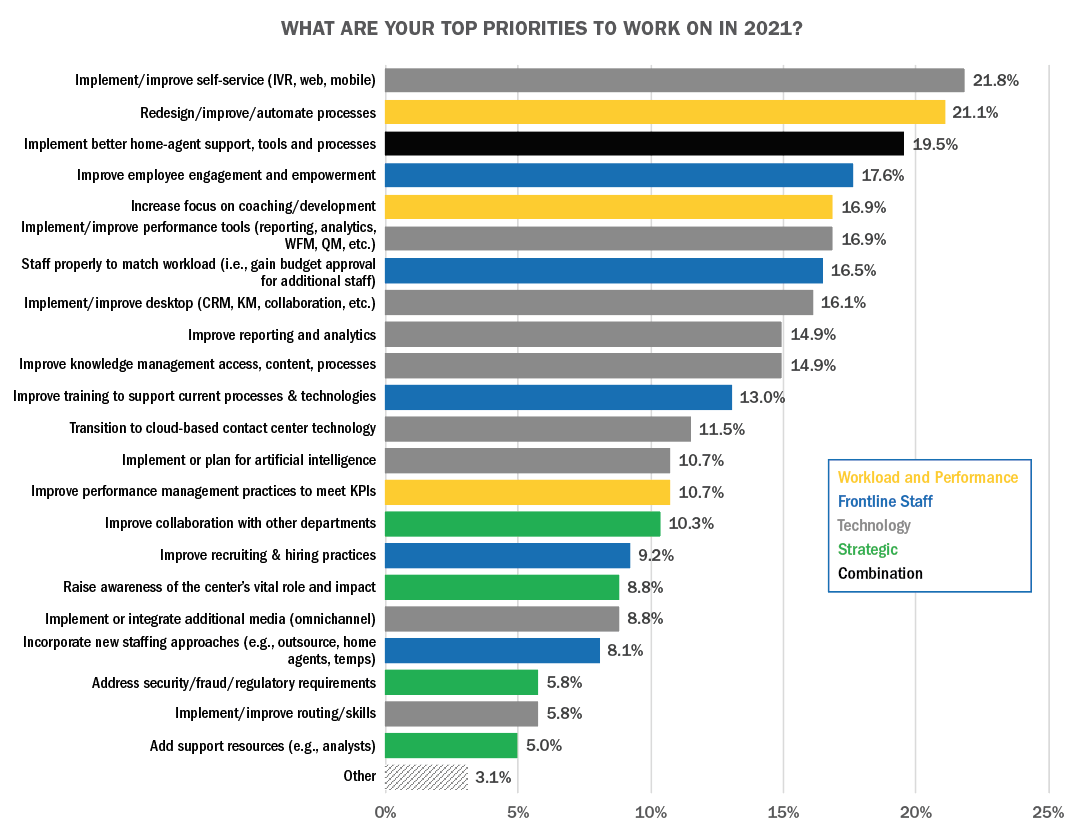
Your Guide to Redeeming the Bad & the Ugly Factors of Call Center Coaching
You have an endless to-do list. You’re hiring new agents, handling mounds of paperwork, implementing new processes. Oh, and you’re supposed to buy more eggs at the grocery store. Most days, the list is too long and nearly unmanageable. Bottom-of-the-list priorities shift from one day to the next. To the next. To the next. Until eventually, you let something slip for weeks without even realizing it. How are you supposed to handle all these tasks?
Too many call center managers are drowning under a similar pile of work. And, when it comes to coaching in your call center, on top of everything else, you’re left floating without a life raft.
In many call centers, coaching exists as a way to hit KPIs, cross your T’s and dot your I’s. But, without solid coaching practices in place, your agents lose out on the benefits of quality coaching and support. Your coaching program might not be up to par. It’s not your fault! You have a to-do list with dozens of priorities, and traditional coaching methods are painful and time-consuming. But agents need, and crave, more frequent coaching to succeed.
>> Download Now: 52 questions to ask your agents to improve their experience (and your customers’)
Coaching has the Biggest Impact on Call Center Agent Performance
Oracle looked at the factors affecting employee engagement, and guess what? How you coach impacts many of the top factors. Leadership, performance, and talent development snagged top spots on the list. Some 46% of people surveyed said the key to maintaining high performance is regular assessments of how they’re doing. Meaning, agents who get feedback regularly will outperform those who don’t.
Similarly, 47% of people say they’re most successful when their leaders are available and approachable. Being available and approachable means your agents trust you, so coaching can be conversational. Sending agents one-time reviews and crunching numbers to determine performance isn’t the way to be a successful coach. To be a successful coach, agents need to feel empowered to talk to you about their role. Coaching doesn’t have to be all-consuming. It’s possible to streamline your coaching efforts for better results and less stress.
Agents need better coaching, and you need more time. Contact center coaching isn’t always pretty. But it’s always needed. So, let’s take a good, hard look at the bad and ugly parts of coaching so we can fix it.
The Bad Part About Call Center Coaching
Coaching is broken. And what’s discouraging is, there aren’t really any contact center best practices to fix it. In its current state, coaching boils down to a few piled-together lessons that represent months’ worth of data and interactions. You’ve got spreadsheets upon spreadsheets of metrics, goals, and notes on your agents’ performances…now what?
Consider this: you sit down with your agent Gina for her bi-annual performance review. You bring up that one time she misspoke and shared a little too much about her eventful morning during a customer interaction. (I mean, come on, she was just trying to be personable like you always tell her to be). But she doesn’t know if you’re referring to a conversation from August or October. In fact, she often adds personal details into her conversations to create relationships with customers. So now she doesn’t know right from wrong. What help is that?
Rigid, infrequent coaching conversations mean your agents don’t get actionable guidance. They learn a few key points here and there, sure, but they can’t connect these points to specific examples for meaningful feedback. It’s not helpful to offer feedback on calls that occurred months ago. Your agents aren’t given the opportunity to grow and learn from their mistakes in the moment. How discouraging would it be to find out that you’ve been, for months, handling an interaction poorly? Meanwhile, you thought you were doing the right thing.
Infrequent coaching leaves your agents in the dark. And what’s worse? It brews fear and tanks morale, too.
Check out this note one agent shared in a call center agent forum:

When you only coach and deliver feedback once in a while, especially after something negative like your agents missing a metric, they live in fear. They learn to loathe coaching sessions rather than seeing them as an opportunity for growth.
Contact center agents need frequent feedback and training to continuously improve. The more you coach your agents, the more knowledge they’ll have to solve customer problems from the start. In fact, agents with 50 hours of training each year have higher than average resolution rates compared to their peers. But most agents get a few weeks of training at the start of a new job and sporadic coaching (if any) after. Agents need better, more focused training to improve performance and support your customers.
>> Read Next: Four Steps to Take to Build a Better Training Program in your Contact Center
The Ugly Part About Call Center Coaching
Ok, so your agents need more frequent feedback, more training, and approachability. But, let’s get real…You don’t have time to coach. McKinsey & Co. says across industries, frontline managers spend 30-60% of their time on administrative work and meetings. Another 10-50% of the time on tasks like traveling, participating in training, taking breaks, conducting special projects, or handling customer interactions themselves. Only 10 to 40% of their time is spent actually managing frontline employees and coaching them directly.
But, when considering top priorities in contact centers this year, coaching and training are top of the list. Following 2020, agents need your support and investment more than ever.
Ok, now what? You want to coach, and you know the impact it will have on your agents, but you don’t know how to make it happen with only three hours per week.
There’s a way to fix it. As I mentioned earlier, streamlining your contact center coaching methods is possible. Let me show you how.
Redeeming Coaching in your Call Center
First, make sure your agents know and understand their goals and how they’re being measured against those goals. Choose key metrics to monitor and display to agents, so they can keep track of their daily progress.
Pick the metrics that matter most to your customer outcomes and help your agents key in on improving only those few. Narrowing down your pool of metrics and feedback gives you tangible evidence to better coach your team.
Then, use these metrics and your goals to fuel in-line training for your team. Add reviewing interactions to your daily workflow to give your agents feedback in-the-moment and often. Review a couple of interactions in between meetings or first thing in the morning, and add contextual feedback to help agents grow.
Create Agent Scorecards to keep your feedback focused on a specific set of criteria for each agent. Customize your scorecards to track your key metrics and check for customer sentiment, too. When you show up to performance conversations (regularly) with tangible data to back your conversations, agents get a clear view of where to improve. And, when you bring relevant feedback and suggestions based on the data you surfaced, agents learn how to improve.
The bottom line: coaching is broken, but it doesn’t have to be. When you optimize your efforts and make coaching work for you, you can take back your time and empower your agents.
>> Learn More: See how empowering agents helps your bottom line
We originally wrote this post on August 29, 2018, and we updated it on July 15, 2021.


